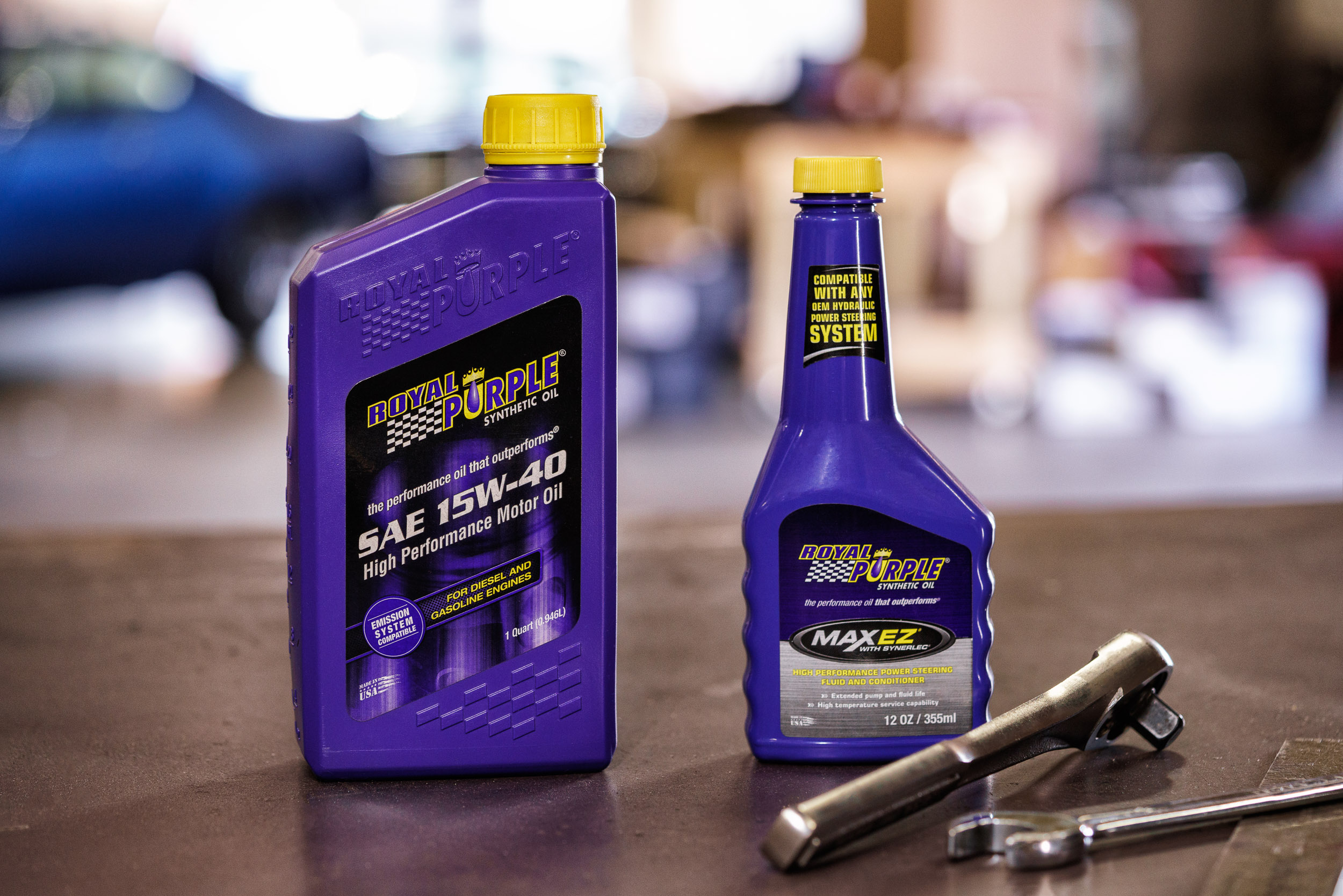
ZDDP Oil Change
Depending on when your engine was built, your engine’s internal components (such as your camshaft, etc.) may require an oil additive called ZDDP that helps to lubricate the cam lobes and prevent them from excessive wearing. Recent EPA regulations have removed this compound from oil purchased off the shelf as improved metallurgy has made it unnecessary for newer cars. If your car’s engine has internal components from before 1989, treat your car to our ZDDP Oil Change, which includes the necessary additive to protect your engine and its internals.
Fluid Flushes
You change your oil religiously, but what about the other fluids in your vehicle? Fluids that protect the mechanical components of your classic car from wear will collect contaminants or break down over time from many cycles of being heated and cooled – stripping them of their protective properties.
Specifically, condensation will build up in your brake fluid and power steering fluid making your vehicle less responsive (air compresses). This condensation can wreak havoc on your wheel cylinders in your drum brakes, your calipers in your disc brakes, and your power steering pump. To protect your vehicle from the failure of these components, we recommend you flush your brake fluid and power steering fluid should every 2 years or 20,000 miles. (Or after your vehicle has been in storage somewhere damp.)
Friction is the enemy of mechanical parts – and what component of your car sees more friction than your transmission? To ensure the longevity of your transmission, your transmission fluid should be serviced every 3 years or 30,000 miles. That, or we’ll be seeing you for a transmission overhaul at some point in the future.
Not sure when your fluids were last changed? Our technicians can inspect your fluids to determine if they need to be changed. Most fluids have visual or olfactory indicators such as changing colors or omitting odors when they need to be changed.
Coolant Additives
Anyone who’s spent an August in St. Louis can tell you about the oppressive heat – and the heat has an impact on your classic car too? If you’re pushing 210 or above on temp gauge, coolant additives such as Water Wetter can help your radiator more effectively exchange heat. If your cooling problems are something that will not be so easily quelled, see our cooling system services.
Contact Us











